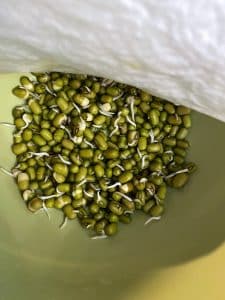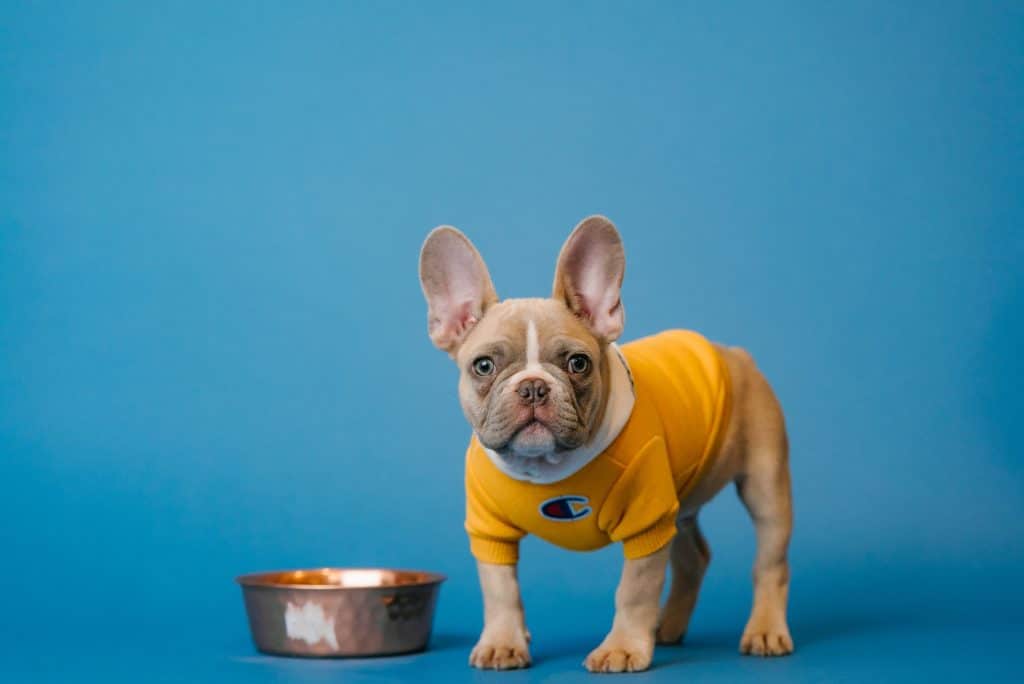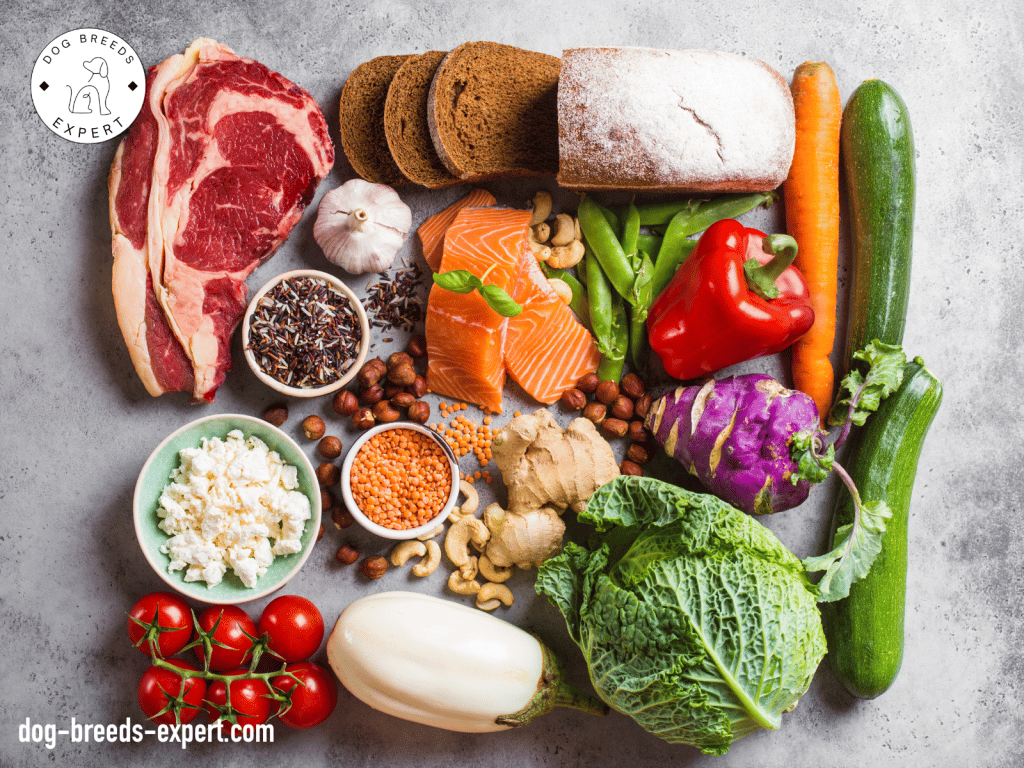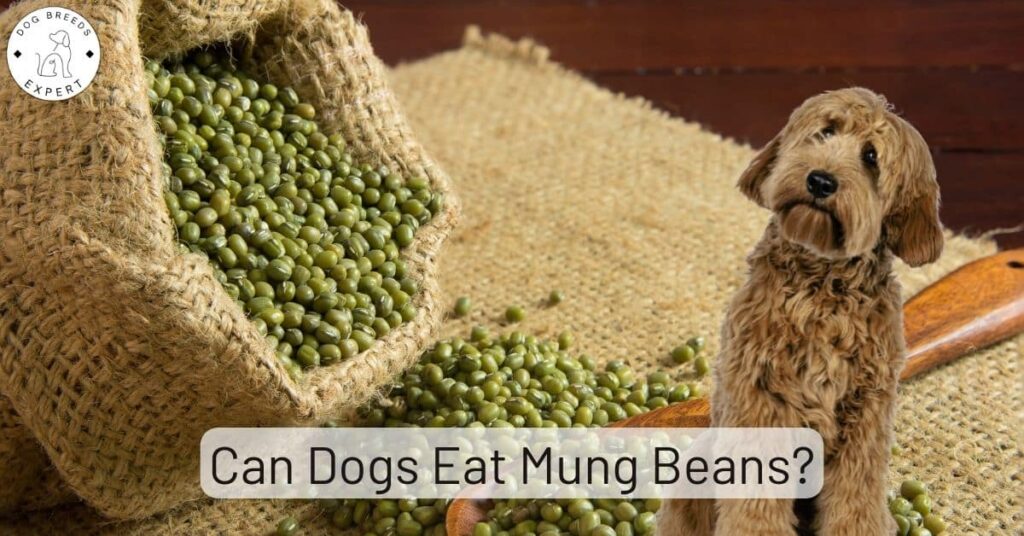
Although dogs are carnivores, they are not obligate carnivores; they do not primarily depend on meat to survive. Dogs can enjoy various human foods, including vegetables, fruits, and grains. But can dogs eat mung beans?
Dogs can eat mung beans; they are excellent sources of fiber, vitamins, minerals, and digestive enzymes. However, they should take them in moderate quantities since legumes contain phytates and lectins that can cause a leaky gut.
The rest of the article discusses the nutritional value and the potential risks of Mung beans and tips for feeding dogs with mung beans for optimal health.
Nutritional Value of Mung Beans to Dogs

Also knowns as monggo beans, green grams, golden grams, Moong beans, or Jerusalem peas, Mung beans are native to India; your dog can consume them as sprouts or dried beans. They are rich in B Vitamins, minerals, fiber, digestive enzymes, and proteins. Let’s look at how each component provides nutritional value to dogs.
B Vitamins
Mung beans are rich in Vitamins B1, B2, B3, B5, B6 & B9.
Also known as thiamin, Vitamin B1 is essential for dogs for healthy growth. It assists in the breakdown of carbohydrates, metabolism, and the conversion to Adenosine Triphosphate (ATP). Besides, it helps maintain good vision.
Vitamin B2 is a coenzyme responsible for the metabolism of fats and carbohydrates to energy and in the production of red blood cells to transport oxygen and nutrients to the rest of the body.
Niacin, or Vitamin B3, is essential to a dog’s health. It assists in the metabolism of fats and supports a healthy brain. Additionally, it regulates the production of hormones, including vasopressin for normal kidney function, corticotrophin release hormone, growth hormone, and digestive juices for a healthy stomach.
Also known as pantothenic acid, Vitamin B5 is an anti-stress hormone involved in producing adrenal hormones, metabolizing other vitamins, and converting fats and carbohydrates to energy.
Vitamin B6, also known as riboflavin, regulates hormones and assists in glucose generation and immune response. On the other hand, Vitamin B9 is a co-enzyme that assists in producing nucleic acids, blood cells, tissue growth, and cell division.
Minerals
Mung beans are rich in essential minerals, including manganese, magnesium, phosphorus, iron, copper, zinc, and potassium. Manganese is a trace mineral that dogs need in small amounts, and it helps digest carbohydrates and proteins in the diet and normal skeletal, kidney, and liver functions.
Phosphorus maintains a healthy kidney and heart and normal motor functions like walking and running. On the other hand, iron assists in the formation of red blood cells and hemoglobin, and puppies require more of it than mature dogs. Vet experts recommend 36 grams of iron per pound of dry dog food.
Copper increases the absorption of iron and the formation of skin and hair tissues. A lack of it can cause muscular and skeletal problems, while too much can cause overload.
Zinc is essential for improving immunity and regulating insulin and growth hormones, and it also reduces inflammation and supports optimal skin and eye health.
Potassium works with calcium to maintain strong bones and teeth. It also stimulates muscle growth and supports nerve, kidney, and motor functions.
Proteins
One cup of boiled mung beans has 14.2 grams of proteins and provides essential amino acids, including Phenylalanine, Leucine, isoleucine, Valaine, Lysin, and Arginine. Dogs need amino acids to grow and maintain hair, nails, and muscles and produce hormones. A dog needs one gram of protein per the ideal body weight daily.
Questions You May Have
Are Mung Beans Safe For Dogs?

Your dog can eat mung beans in moderate quantities because they contain lectins and phytates that may be difficult for dogs to digest and cause a leaky gut. Additionally, both elements can hinder the absorption of minerals, including Zinc, iron, and calcium leading to deficiencies. Besides, Mung beans have high fiber content, thus overeating them can cause excess bloating and stomach issues, including diarrhea.
Can Dogs Eat Sprouted Mung Beans?
Dogs can eat sprouted Mung beans because they have more nutritional value than unsprouted ones. They are softer and rich in Vitamins C for boosting immunity and supporting healthy skin. They’re also rich in Vitamin K to speed up recovery.
Can Dogs Eat Cooked Mung Beans?
Dogs can eat cooked Mung beans; they are softer and safer than raw ones, and they reduce the risk of choking. Additionally, cooking Mung beans makes them easier to digest and reduces the risk of stomach upset. However, do not add salt, onion, or spices to the beans when cooking them.
How To Feed Dogs With Mung Beans
Mung beans can be a great choice for low calorie treats for dogs, and they can eat them as legumes or sprouts. You can serve sprouted Mung beans raw, but you should boil their unsprouted counterparts before feeding.
How Much Mung Beans Should a Dog Have?
Although Mung beans are rich in essential vitamins and minerals, dogs should eat them in moderation to avoid digestive issues. Pet nutritionists recommend that Mung beans should not make up more than 10% of a dog’s daily caloric intake. However, that depends on the size of your dog, its metabolism rate, and its state of health.
Mung beans should not replace meat in your dog’s diet; although dogs are not obligate carnivores, they need quality proteins that these beans can’t provide. Additionally, your dog should have a balanced diet in addition to Mung beans for optimal health.
Tips When Feeding Dogs With Monggo Beans
- Avoid canned monggo for your dog; they contain high sodium levels that may harm dogs.
- Do not add salt, spices, or onion to Mung beans when cooking them for your dog.
- Wash Mung bean sprouts thoroughly to remove dust, debris, or pesticide traces.
- Soak Mung beans before boiling them for your dog(s).
- Introduce Mung beans gradually by adding small amounts to your dog’s food to see how they react to them.
Conclusion
Dogs can eat Mung beans to get the essential amino acids like Arginine, Leucine, Isoleucine, Lysine, and Valaine. Additionally, the beans are rich in Vitamins and minerals for optimal dog health. However, they should eat them in moderation to avoid bloating and diarrhea from the high fiber content.
Your dog can eat raw or steamed Mung bean sprouts, but the legumes should be cooked for easy digestion. Avoid canned monggo beans since they have a high sodium content, and avoid adding onions, salt, or spices when preparing these beans for your dog.
Image Credits
Pixabay: Mung Beans
Unsplash: Hungry Dog



